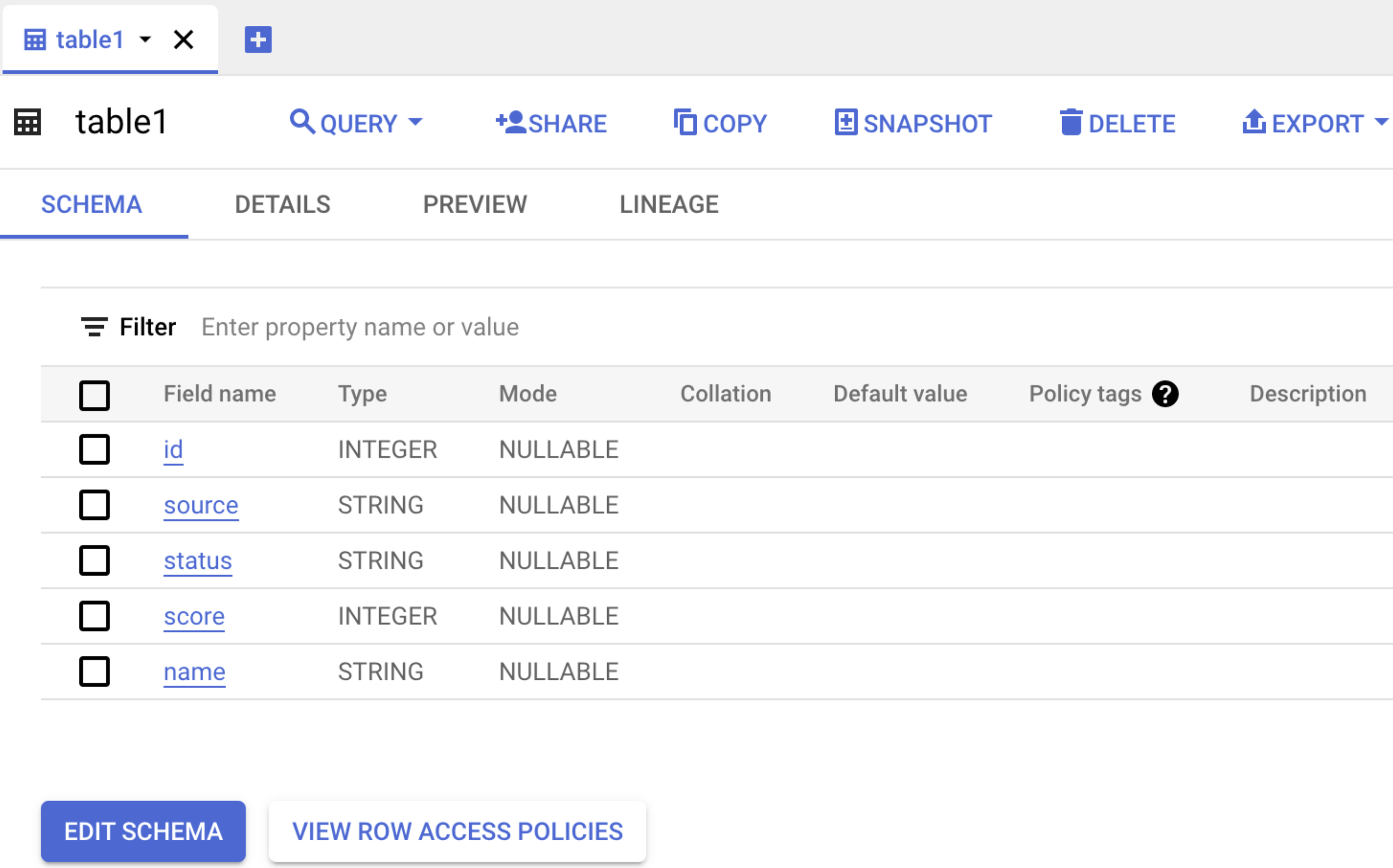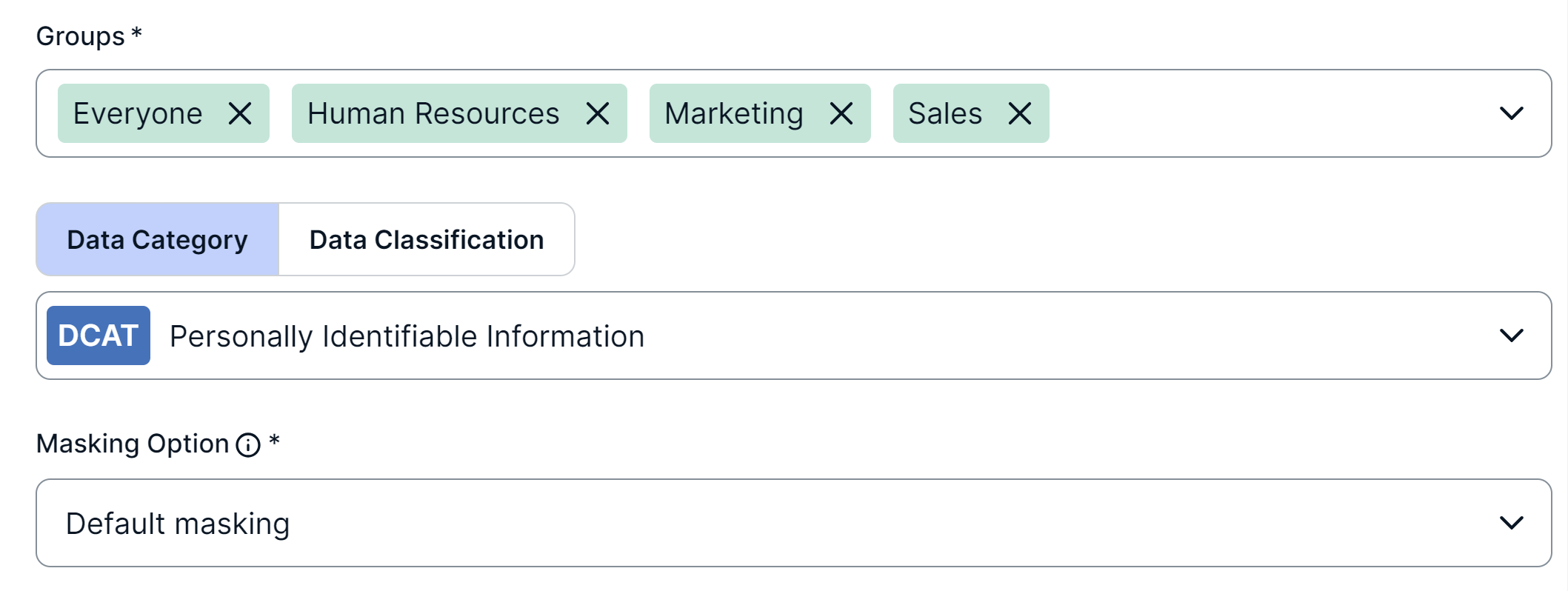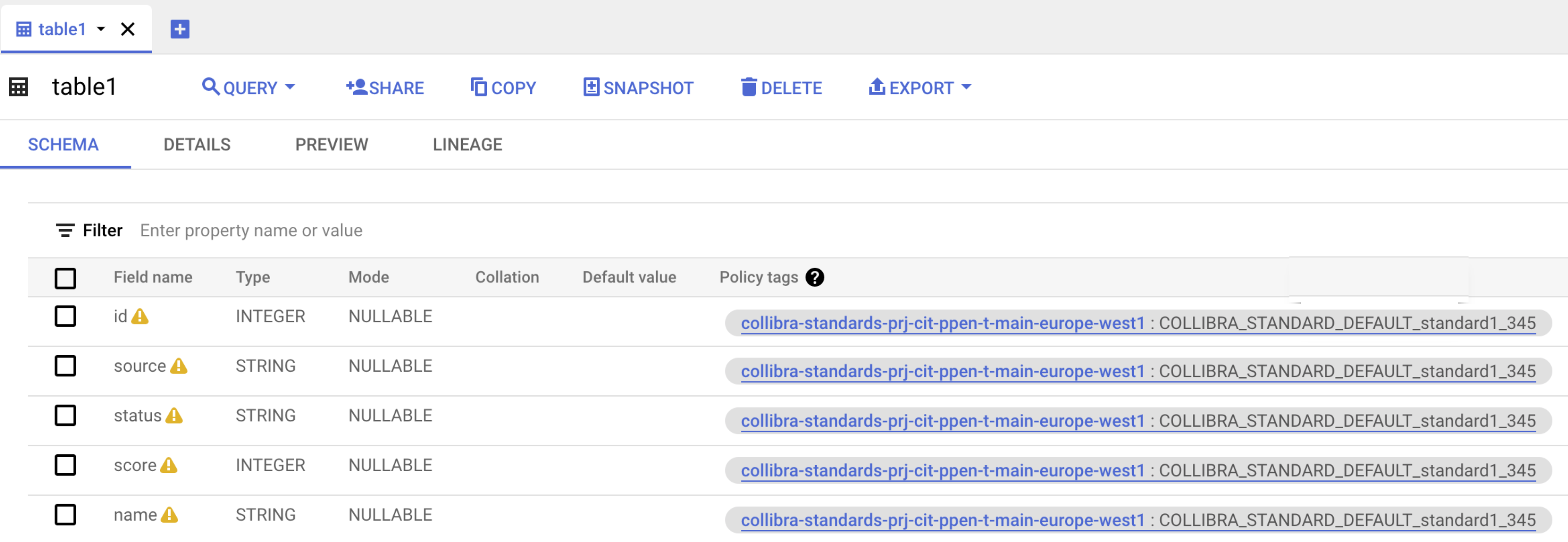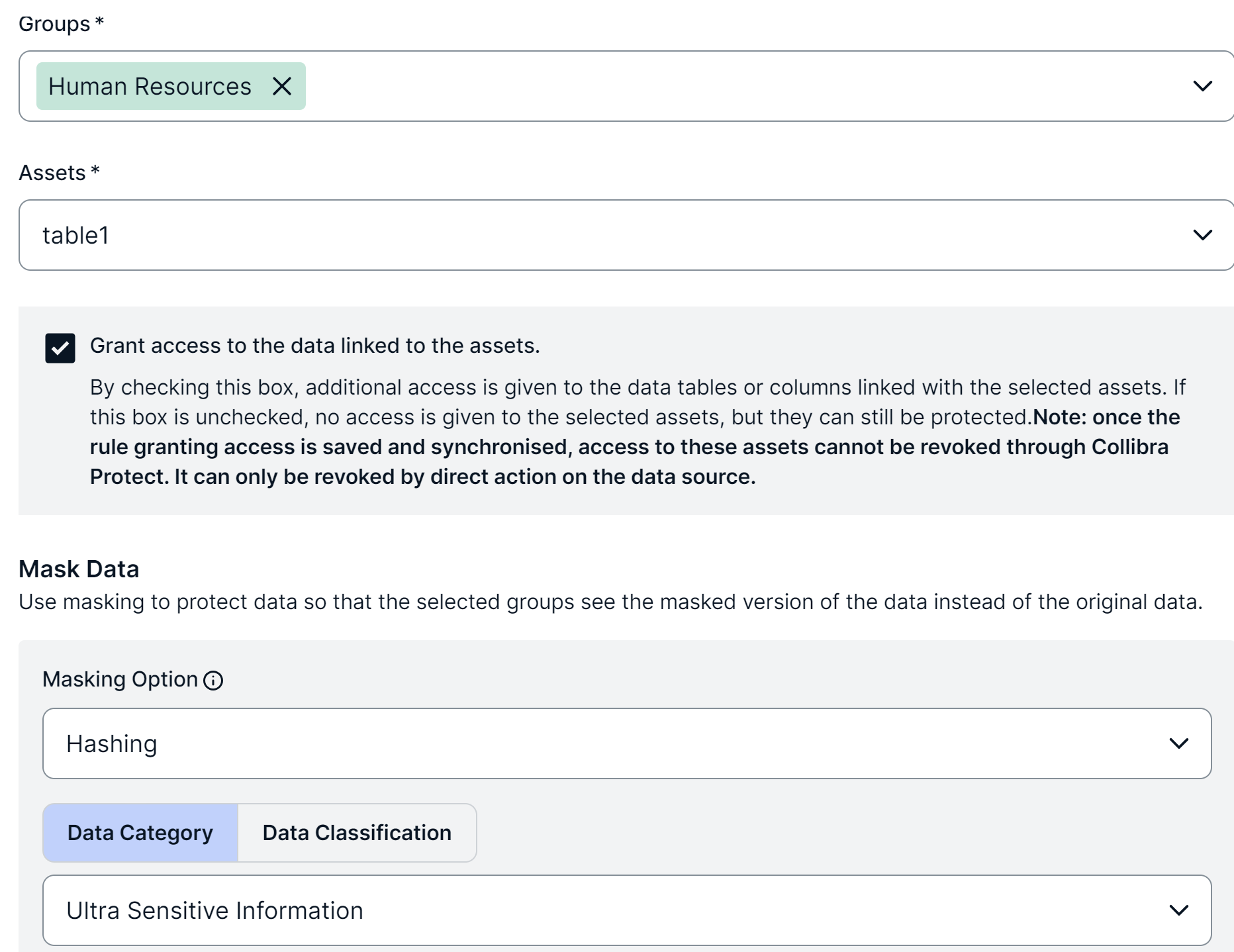BigQuery examples
Choose an option below to explore the documentation for the latest user interface (UI) or the classic UI.
This topic contains examples of how BigQuery behaves with respect to certain data protection standards and data access rules.
Suppose that a table named table1 exists in BigQuery. This table contains Personally Identifiable Information (PII). The PII data category contains all the columns from table1.

A standard is set for the following groups: Everyone, Human Resources, Marketing, and Sales. This standard requires default masking for the PII data category.


Behavior
When the standard is synchronized and active, a standard policy tag is created in BigQuery's taxonomy. The standard policy tag is named COLLIBRA_STANDARD_DEFAULT_<data protection standard name><data protection standard ID>.

The following image shows how the policy tags are applied to the columns in table1.

All the columns are assigned the same standard policy tag and are protected by default masking because they belong to the PII data category (selected in the standard).
Suppose that a table named table1 exists in BigQuery. This table contains Personally Identifiable Information (PII) and Ultra Sensitive Information (USI). The PII data category contains all the columns from table1, except for id and source. The USI data category contains only the status column.

A standard is set for the following groups: Everyone, Human Resources, Marketing, and Sales. This standard requires default masking for the PII data category.


However, a rule is set for the Human Resources group. This rule requires hashing for the USI columns in table1.


Behavior
When the standard and rule are synchronized and active, policy tags are created in BigQuery's taxonomy. The standard policy tag is named COLLIBRA_STANDARD_DEFAULT_<data protection standard name><data protection standard ID>. The rule policy tag is named COLLIBRA_AGGREGATED_POLICIES_<rulesaccesshash>.


The following image shows how the policy tags are applied to the columns in table1.

- The id and source columns do not belong to the PII data category (selected in the standard) or the USI data category (selected in the rule). Therefore, they are not protected by either the standard or the rule. However, they are still assigned a rule policy tag with the Fine-Grained Reader access to allow users to view the original data.
- The name and score columns belong to the PII data category (selected in the standard). They are assigned the same standard policy tag and are protected by default masking.
- The status column belongs to both the PII data category (selected in the standard) and the USI data category (selected in the rule). Because the rule takes priority over the standard, the status column is assigned only the rule policy tag and is protected by hashing.